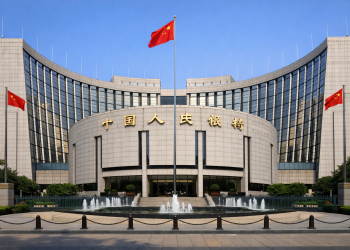Russian authorities are building a legal and operational framework to convert seized Bitcoin (BTC) into cash for the state treasury, as the country grapples with regulatory uncertainty surrounding cryptoassets.
The effort, led by the Federal Bailiff Service (FSSP), follows the confiscation of BTC 1,032 from former investigator Marat Tambiev, valued at around $10 million, marking a major test case for Russia’s evolving crypto policies.
In a video published on the Federation Council’s RuTube channel, FSSP chief Dmitry Aristov said Russia is using this legal precedent to explore mechanisms for transforming confiscated digital currencies into state revenue.
However, a comprehensive legislative solution is still pending.
FSSP prepares crypto sale
Dmitry Aristov, head of the FSSP, addressed the Federation Council’s Committee on Constitutional Legislation and State Building, describing Bitcoin as a “problematic asset” for law enforcement.
He confirmed that bailiffs had confiscated BTC in at least one criminal case and are now collaborating with other state bodies to convert the coins into state-held funds.
The committee’s inquiry focused on the protocols for confiscating cryptocurrencies, and Aristov is said to have pointed to the Tambiev case as a legal basis.
During the investigation, law enforcement seized BTC from the former senior investigator, who was found guilty of accepting cryptocurrency bribes from members of the Infraud Organization hacker group. Tambiev was sentenced to 16 years in prison.
Aristov noted that until a bill is passed defining the legal status of Bitcoin and other coins, a robust framework for consistent seizure and conversion remains out of reach.
Tambiev case sets precedent
The case of Marat Tambiev has become a landmark for Russian legal and enforcement authorities.
In 2024, he was convicted of accepting bribes in Bitcoin from an international cybercrime group in exchange for obstructing a criminal investigation.
The FSSP seized BTC 1,032 from Tambiev, a sum worth approximately $10 million, making it one of the largest crypto seizures by a Russian state body.
Following the seizure, the Russian Treasury began working on monetising the confiscated BTC.
In January 2025, authorities confirmed they had started transferring the crypto into state accounts and planned to begin selling it off.
The Civic Chamber has also weighed in, proposing a new state fund to manage confiscated cryptoassets.
The Chamber recommended that proceeds from the sale of digital currencies be allocated to fund public projects, further tying the need for legislative clarity to broader economic and social policy objectives.
Crypto policy remains divided
Despite two key pieces of legislation passed in 2024—one recognising crypto mining as a legitimate business, and another allowing crypto in international trade within a Central Bank-run sandbox—the country’s broader stance on digital assets remains conflicted.
A long-standing law still prohibits the use of cryptocurrencies for payments within Russia.
The Central Bank continues to advocate for stricter controls, proposing bans on retail crypto investment and on crypto exchanges operating outside its sandbox environment.
However, other ministries and major industrial miners favour regulation over prohibition. They argue for a more open approach, allowing regulated crypto exchanges and clearer legal standards for transactions.
The result is a policy gridlock that complicates enforcement efforts like those of the FSSP.
Crypto fund and sandbox plans
The Civic Chamber’s suggestion of a centralised fund for seized cryptocurrencies indicates an attempt to institutionalise the handling of digital assets within the state system.
If adopted, it would formalise the redistribution of crypto-derived revenue into public welfare.
Meanwhile, the Central Bank’s sandbox continues to allow qualified investors to trade crypto in a restricted environment.
Although this offers a limited path forward, a broader framework is still needed to support agencies like the FSSP in transforming digital asset seizures into practical financial outcomes.
The post Russian authorities can now convert seized Bitcoin into state funds appeared first on Invezz










